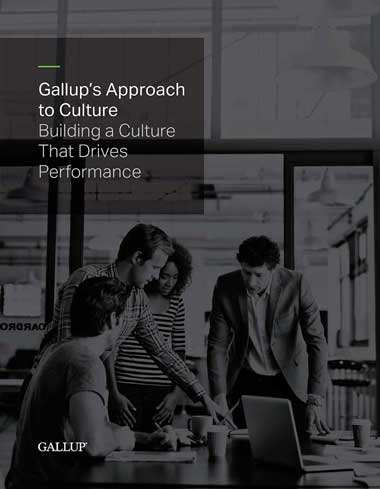Story Highlights
- Many organizations don't have a culture that differentiates them
- The best organizations define a specific set of values
- Corporate values need to align with expectations set for employees
In this four-part series, we examine the role culture plays in creating a successful organization. Previously, we discussed how culture affects talent, performance and retention. This is the final article in this series.
Many organizations claim that their culture is important to them and their customers.
And yet the reality is that most companies within an industry have nearly identical mission statements supported by nearly synonymous values: Excellence. Integrity. Quality. Accountability. Safety. Teamwork. People.
Those aren't bad values by themselves, but they need to go to a deeper level.
Excellence can only differentiate your organization when it points to something more specific. Excellent products. Excellent delivery speed. Excellent customer service.
For many companies, their industry defines their identity -- and few customers, when pressed, could probably tell them apart from their competitors aside from cost.
And this isn't too surprising, when only 41% of employees strongly agree that they know what their company stands for and what makes it different from competitors.
Ask yourself these questions about your organization:
- Do your values have relevance for your customers?
- Do your customers experience your values in some way?
- Do your values differentiate you within your industry?
Poorly defined values that are not aligned with business success lead to cultures that are at best bland and at worst hypocritical.
Consider the organization that touts "a culture of excellence" and yet all leadership decisions are based on cost-cutting. Or the company that emphasizes the importance of accountability -- but only for some.
Few customers, when pressed, could probably tell you apart from your competitors aside from cost.
Great cultures are not generic cultures. They are directed at a specific outcome.
The best organizations don't try to be everything to everyone.
They find the few things worth obsessing over that are critical to success and that differentiate them in the marketplace. Then they build their culture around those things.
Culture is the difference between getting the job done and getting the job done in a way that differentiates your organization and adds value in a unique way for your customers.
What's Expected?
Consider a business with a call center for customer service.
Most call centers rate and rank their employees based on call handling time. The faster a call is resolved, the more efficient the worker, the better the performance.
But what kind of culture does that reinforce? Is that a customer-centered culture or an efficiency-centered one?
Alternatively, consider a call center with a customer-centered culture that recognizes and rewards those employees who provide a great experience to customers, regardless of it taking two minutes or 10.
Consider the subtle message that each of these cultures communicates to employees and how that translates into customer interactions.
In short, what you decide to measure and celebrate has a major influence on your culture.
And an organization wins when its culture has a direct, positive impact on the customer experience.
One of the most common questions that Gallup asks employees is: Do you know what is expected of you at work?
Sounds simple, but only one in two employees clearly know what's expected of them. That means, on any given day, half of your team may not know what they should be doing.
And it's not just a question of having a task list. Knowing what is expected of you at work is also a question of culture.
Are you expected to win at all costs? Are you expected to cut corners to meet deadlines? Are you expected to invest in your team? Are you expected to go the extra mile for customers regardless of the amount of effort? Are you expected to take risks even if it leads to short-term failure?
These things rarely show up on a job description. They are subtle messages we receive on the job.
However, they can be a point of significant stress when employees receive messages that clash with touted corporate values.
Ask Your Customers Culture Questions
Gallup research shows that employees who align strongly with their organization's culture have higher performance.
And when you add customer data, you should be able to see a direct connection between culture, customer experience and performance.
This means asking culture-related questions to employees and customers.
Customer feedback surveys should include culture questions like:
- Do you feel cared for?
- Did we empathize with you?
- Did we deliver on our promises?
- Are you proud to be a customer of ours?
- Did you learn something new?
- Do we do things in a unique way?
To truly retain customers, you have to look beyond customer satisfaction and think about how your organization uniquely delivers on its promises.
Only when customers clearly understand and experience an organization's unique culture does that culture have the potential to become a competitive differentiator in the marketplace.
Gallup can help you define and build a culture that helps you retain loyal customers:
- Read the first three articles in this series about how culture affects talent, performance and retention.
- Download our perspective paper, Get the Most Out of Your Culture.
- Partner with Gallup to create a culture that makes you uniquely you.



